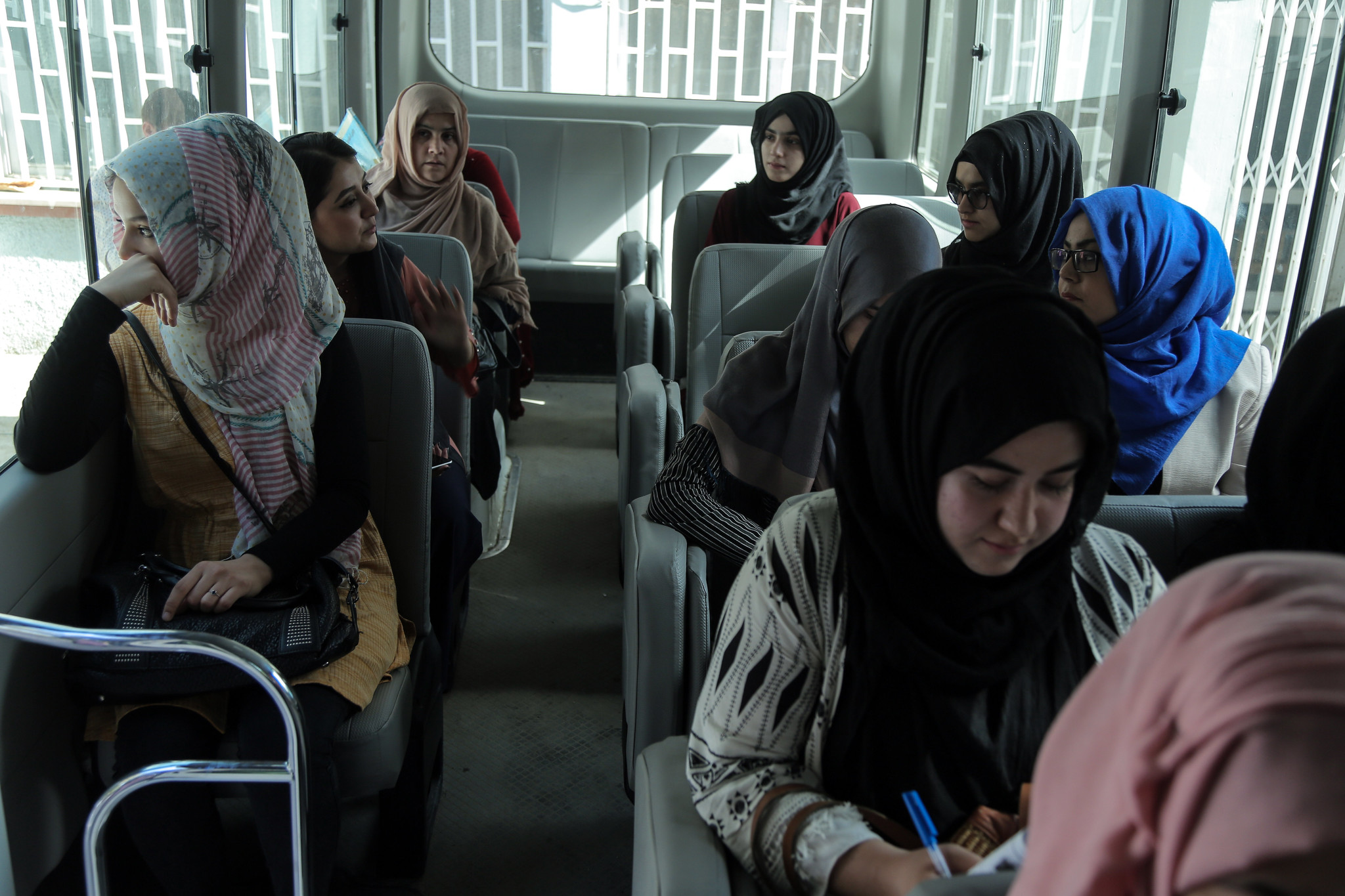
Kabul, Afghanistan, March 24, 2021 — Ninety-Seven percent of women in major economic hubs of Afghanistan have signaled that they would prefer a Gender-Segregated Transport (GST) service if made available to them.
These findings are based on primary research conducted by IFC, a member of the World Bank Group, for a recent publication, On the Road to Greater Mobility: Understanding the Demand for Gender-Segregated Transportation in Urban Afghanistan. Over 2,000 Afghan women were interviewed in their homes, public places, and while waiting by the roadside for public transportation.
Affordable and safe public transportation is essential for women's greater economic participation and social empowerment. Previous research conducted by the International Labour Organization suggests that limited access to transportation services and lack of safety reduces the probability of women's participation in the labor force market in developing countries by as much as 16.5 percent. Although women comprise 49 percent of the 38 million Afghan population, the transportation policies of Afghanistan have yet to address the specific needs of women especially in the cities where women's mobility is higher than in the other parts of the country.
"Adopting a gender lens while designing transport solutions can help women save time, lower their expenditure, and make them feel safer while commuting. It can also increase their access to higher education, vocational training facilities, and job opportunities," said Nadeem Siddiqui, IFC Senior Country Manager for Afghanistan and Pakistan "This is the first of many steps needed to enable greater access to safe and reliable transportation for all, and especially women in the country. This is not only a good development agenda but also an untapped business opportunity for the private sector with half of the country's population comprising of women."
The research explored the transportation preferences and demand patterns of women living in Afghanistan, especially in urban areas with a comparatively high percentage of working women at about 30 percent. The respondents indicated that GST could offer them an opportunity to travel without fear of harassment and without having to bear the financial burden of paying extra to secure a 'women only' seat in public transport.
"There is political will for promoting gender equality in Afghanistan, one of the ten National Priorities of the country is Women's Economic Empowerment," said Mortaza Habibi, Director of Transport Infrastructures - Kabul Municipality "In the transport sector there is a need for exploring policies with a gender lens, and we welcome the insights generated by IFC's study towards that."
The research combined an extensive literature review with quantitative and qualitative data collection from four of the largest cities in Afghanistan; Herat, Jalalabad, Kabul, and Mazar-i-Sharif.
"Women consider safety as their top priority and even as a condition for their transport choices. Studies highlight that a large number of women across the world feel unsafe while using public transport and many have experienced forms of physical or verbal harassment," said Kamila Sidiqi, CEO and Founder of Kaweyan Group of Companies "There is an urgent need for transport providers to make safety a key measure in the design and provision of their services."
Existing data on gender and transportation, especially from Fragile and Conflict-Affected Situations (FCS), are limited. While there are studies on the efficacy of gender-segregated transport (GST), including in countries neighboring Afghanistan, this report uses the first data set to map commuting patterns of women in Afghan cities.
About IFC
IFC—a member of the World Bank Group—is the largest global development institution focused on the private sector in emerging markets. We work in more than 100 countries, using our capital, expertise, and influence to create markets and opportunities in developing countries. In fiscal year 2020, we invested $22 billion in private companies and financial institutions in developing countries, leveraging the power of the private sector to end extreme poverty and boost shared prosperity. For more information, visit www.ifc.org
Stay Connected
www.ifc.org/southasia
www.facebook.com/IFCSouthAsia
www.twitter.com/IFC_SouthAsia
https://www.linkedin.com/showcase/ifc-asiapacific
www.youtube.com/IFCvideocasts
www.instagram.com\ifc_org
Contacts
Stay Informed
Sign up to have customizable news & updates sent to you.